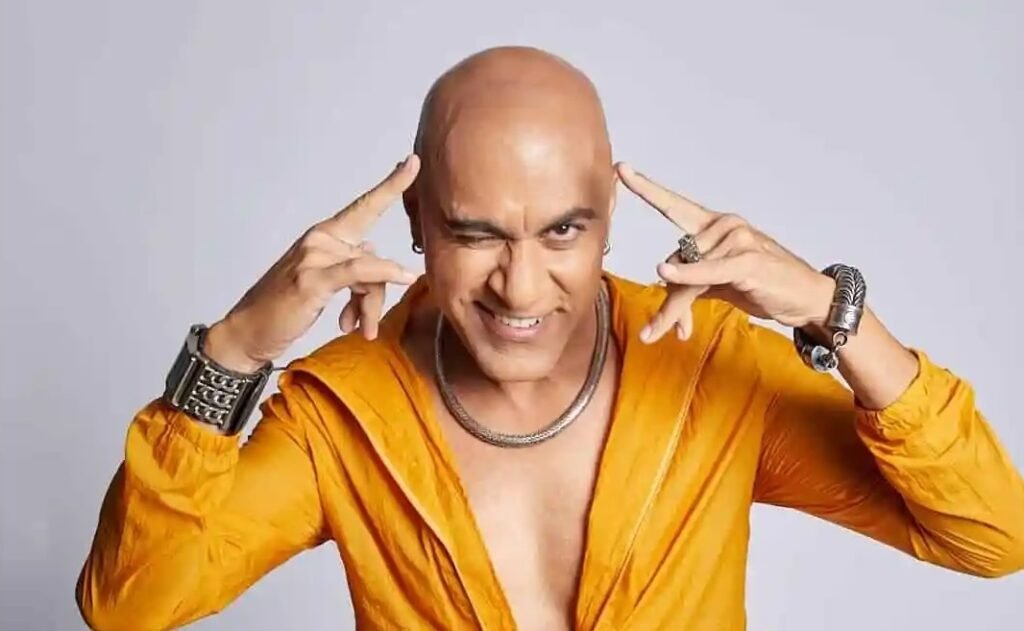Baba Sehgal is a pioneering Indian rapper and entertainer, known for his significant contributions to the Indian music scene since the early 1990s. He first gained fame in the Indipop genre with his hit album “Thanda Thanda Pani” in 1992, which is considered the first successful Indian rap album, selling over 5 million cassettes. With a strong presence on MTV during that era, Baba Sehgal became a prominent figure in popular Indian music, known for his quirky and fun style. He has released many albums, including “Dilruba,” “Alibaba,” and “Main Bhi Madonna,” and has also been involved in film music direction and acting, notably in the mid-1990s. Despite his early popularity, he faced challenges and insecurity within Bollywood, including threats from underworld figures in the late 1990s, which affected his career trajectory and led him to live abroad for safety. However, he found recognition and success in South Indian cinema, recording songs in Telugu, Tamil, and Kannada.
Baba Sehgal’s journey also includes a stint on reality television; he participated as a wild card contestant in the first season of Bigg Boss in 2006, where he stayed in the house for 18 days. This experience was seen by him as a unique and transformative chapter, likening it to a “luxury paid holiday.” Throughout the years, Baba Sehgal has reinvented himself, staying relevant on social media platforms like Twitter and YouTube by engaging fans with humorous, contemporary content and new music releases.
He has been candid about his experiences, including his challenging moments with Bollywood personalities and the underworld’s influence on the industry. Baba Sehgal remains a well-loved figure, celebrated for his pioneering role in Indian rap and his enduring presence in entertainment.
Bollywood Struggles and South Indian Success
Despite initial popularity, Baba Sehgal experienced challenges within Bollywood. He often felt sidelined because the industry was insecure about his style and direct personality. Several Bollywood music directors were hesitant to work with him, and his nonconformity may have caused discomfort among industry insiders. Moreover, during the late 1990s, he faced serious threats from the underworld, which was influential in Bollywood at the time. The threats to stop making music led Baba to move abroad briefly for safety. Despite these hardships, he continued to thrive in regional cinema, especially South Indian films, recording over 250 Telugu songs and numerous tracks in Tamil and Kannada. The South Indian film industry’s acceptance gave him a fresh platform and respect that Bollywood denied him.
Musical Contributions and Reinvention
Baba Sehgal has released numerous albums throughout his career, including “Alibaba,” “Main Bhi Madonna,” and “Welcome to Mumbai.” He is renowned for writing, composing, and performing most of his music himself, maintaining a loyal fan base for decades. Beyond music albums, he has contributed to movie soundtracks and worked as a music director for the 1995 film “Dance Party,” which featured the popular track “Kapurthala Se Aaya Hoon.” Baba Sehgal was also the first Indian artist to have a music video aired on MTV Asia, elevating the visibility of Indian rap globally. Over time, as pop music gave way to remixes and Bollywood-centric music, Baba adapted by stepping into acting and reality TV, and later embracing social media, where his humorous and relatable content made him a Twitter star.

Bigg Boss Experience
In 2006, Baba Sehgal made a significant appearance on the inaugural season of Bigg Boss, the Indian version of the popular reality show Big Brother, as a wild card entry. He stayed in the Bigg Boss house for 18 days, describing the experience as intense but enjoyable. Baba turned the confines of the house to his advantage, embracing conflicts and challenges with his signature wit and positivity. He considered his Bigg Boss stint as a “luxury paid holiday,” using the platform to stay in public conversation and reinvent his image to a wider audience beyond just music.
Recent Activities and Public Persona
Today, Baba Sehgal remains active in entertainment, producing new music, performing live shows, especially for South Indian audiences, and engaging fans through digital platforms. He recently released creative renditions of classic songs and continues to use social media for both music and comedic expression. Baba’s transparent reflections on his career—discussing his clashes with big names like Mani Ratnam and AR Rahman, and the underworld threats—highlight his resilience and unique place in Indian pop culture. His contributions as a pioneer of Indian rap and his adaptability have ensured his lasting presence in the industry.
